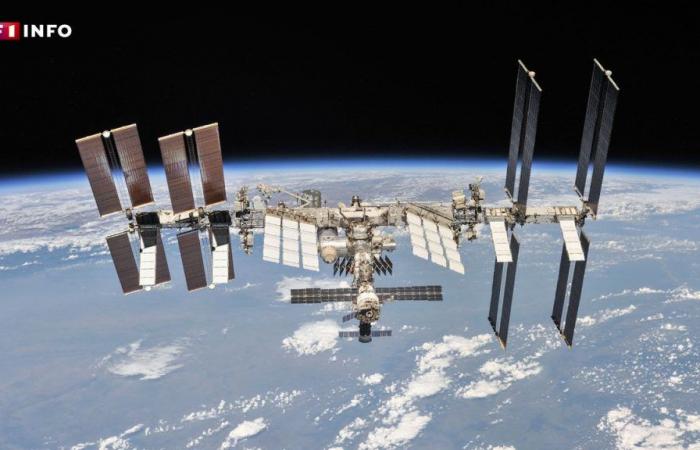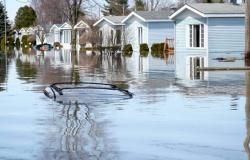In a report, NASA is concerned about a worsening oxygen leak on the Russian segment of the space laboratory.
Estimating the risk “at five out of five”, the agency issued recommendations to ensure the safety of the crew on board.
Houston, we have a problem! NASA and the Russian space agency (Roscosmos) are trying to plug an oxygen leak aboard the International Space Station (ISS). But the latter continues to get worse, to the point that the Office of the Inspector General of NASA mentions in a recent report “a major security risk” of the space laboratory and its occupants. This leak, the cause of which has not yet been identified, has already been the subject of public discussions.
Roscosmos acknowledged last February that it had detected microscopic cracks in the Zvezda module, which is located in the Russian segment of the space station. However, she said the leaks posed no risk to the safety of the crew. However, the recently released report indicates that in April 2024, NASA identified a “increase in leak rate to its highest level yet“.
NASA does not hide its concern
Since this alert, the Russian space agency has limited operations in the area as much as possible and kept the hatch between the service module and the docking port, where the leaks are located, closed in order to minimize the risks. A solution which did not reassure NASA officials, whose report (new window) now assesses the risk of leakage “five out of five“, the highest level of its risk management policy on board the laboratory orbiting the Earth.
-
Read also
End of the ISS in 2031: NASA’s new plan to crash the space station
If no solution is found to stop these leaks, NASA and Roscosmos could consider permanently closing the hatch of the tunnel concerned, which would then prevent astronauts from using one of the four docking ports on the Russian side. of the ISS. The NASA Inspector General’s report recommends a review of orbital debris tracking tools in order to “guarantee the safety of the crew“and the development of”emergency plans” in case the air leaks get worse.






